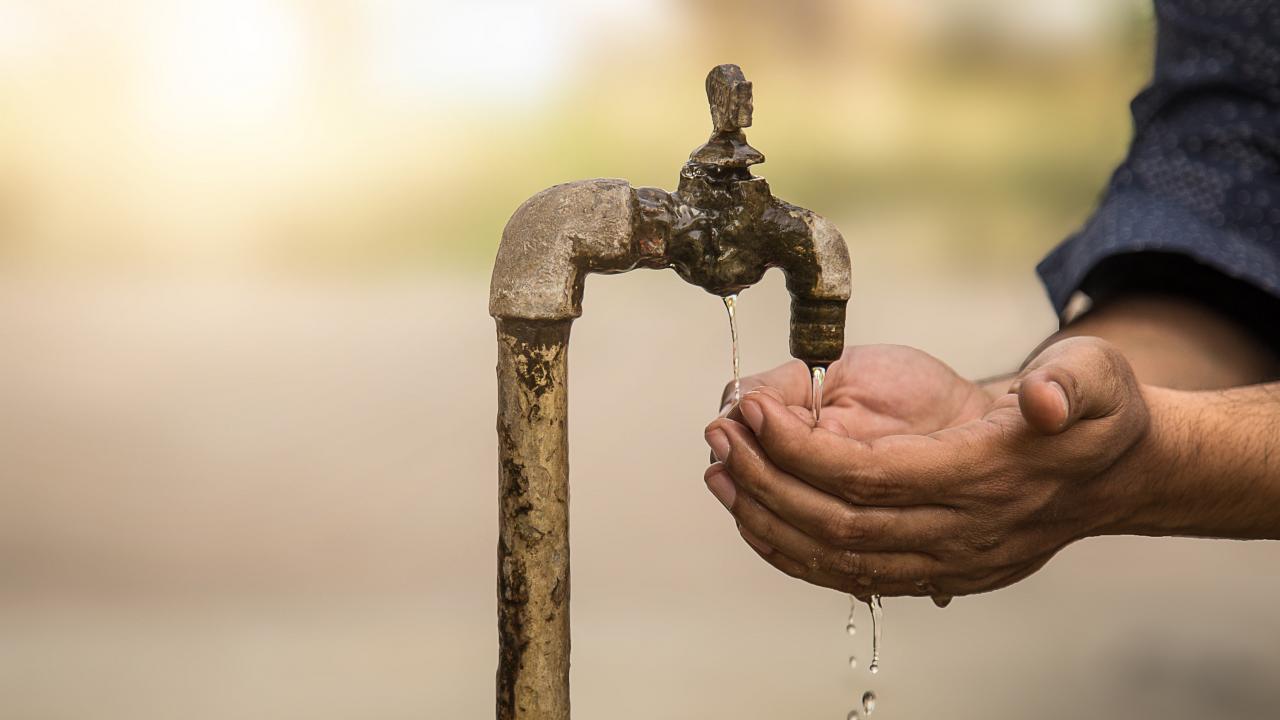Quick Summary
- Researchers found significant variation in how water managers consider climate information
- Lack of climate change adaptation among water utilities can put water supplies and the people dependent on them at risk
Historically, water managers throughout the thirsty state of California have relied on hydrology and water engineering — both technical necessities — as well as existing drought and flood patterns to plan for future water needs.
Now, climate change is projected to shift water supplies as winters become warmer, spring snowmelt arrives earlier, and extreme weather-related events increase. Some water utilities have started to consider these risks in their management, but many do not. Lack of climate change adaptation among water utilities can put water supplies and the people dependent on them at risk, especially in marginalized communities, a new University of California, Davis, paper suggests.
The paper, which analyzes various approaches to climate science by drinking water utility managers in California, will be presented along with new research at the American Sociology Association Conference in Philadelphia on Aug. 11. The paper, “Climate Information? Embedding Climate Futures within Social Temporalities of California Water Management,” was published this spring in the journal Environmental Sociology.
Timely study
“Recent events and political conversation around water management and climate change in California makes this study especially timely,” said Zeke Baker, a UC Davis doctoral candidate and lead author of the study.
To conduct the study, Baker worked with co-authors and additional researchers in 2016 to interview 60 water managers. These managers were selected as a sample of the more than 3,000 water utilities in California.
Some look closely at climate change, others disregard
“We found significant variation in how water managers engage with climate information,” Baker said. “A finding we didn’t expect is that perspectives and experiences of water utility managers clustered in cultural terms, regarding how they understand the future.” The authors label these “social temporalities” in order to bring attention to alternative ways that water managers view climate change and the future generally. Based on the interviews, the researchers found three types of manager’s temporalities, or philosophies.
One type were those water managers who “modeled futures,” or looked closely at climate change to anticipate and plan for water needs. Those were generally large metropolitan utilities with multiple resources and access to expertise, researchers noted. For them, envisioning uncertain futures 30 years out is a matter of course.
On the other side of the spectrum were water managers termed “truncated futures,” or those with the weakest ties to climate science. Climate change is in these cases largely invisible to water management even though it is frequently considered a threat. Study participants exhibiting these perspectives tended to be small, rural and not preparing for climate impacts.
The third group of water managers fell into what Baker calls “whose future?” which includes those who use climate science when it aligns with their political goals, but also those utilities that opt to forgo using climate science because it conflicts with their social interests.
The study concludes that not only policy, but also the translation and possibly the production of climate change science must develop in a way that can engage the diversity of water manager types.
Going forward, the researchers in the next phase of the project will examine the production of climate science related to California. This study seeks to understand how and why climate scientists engage with local or state resource managers, which may shed some light on what could assist those not yet preparing for climate change impacts. These ideas, in addition to the published paper, will be presented and discussed at the conference.
Co-authors with Baker are Julia Ekstrom, formerly Climate Adaptation program director at the UC Davis Policy Institute for Energy and the Environment (now in the Climate Change Program at the California Department of Water Resources); and Louise Bedsworth, a policy fellow at UC Davis.
The paper presented is part of a larger four-year study geared to understand how climate information is used or needed to support long-term water quality planning for extreme events. It is funded by the U.S. Environmental Protection Agency with support from the UC Water Security and Sustainability Research Initiative and the California Natural Resources Agency.
The research will be presented by Baker from 4:30 to 6:10 p.m., Saturday, Aug. 11, at the Philadelphia Marriot Downtown, Level 4, Franklin Hall 12.
Media Resources
Karen Nikos-Rose, UC Davis News and Media Relations, 530-219-5472, kmnikos@ucdavis.edu
